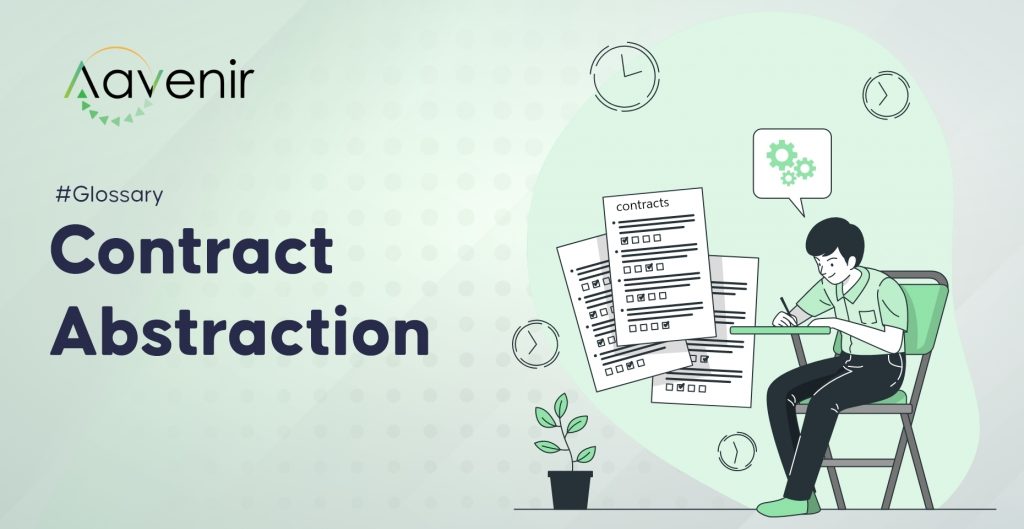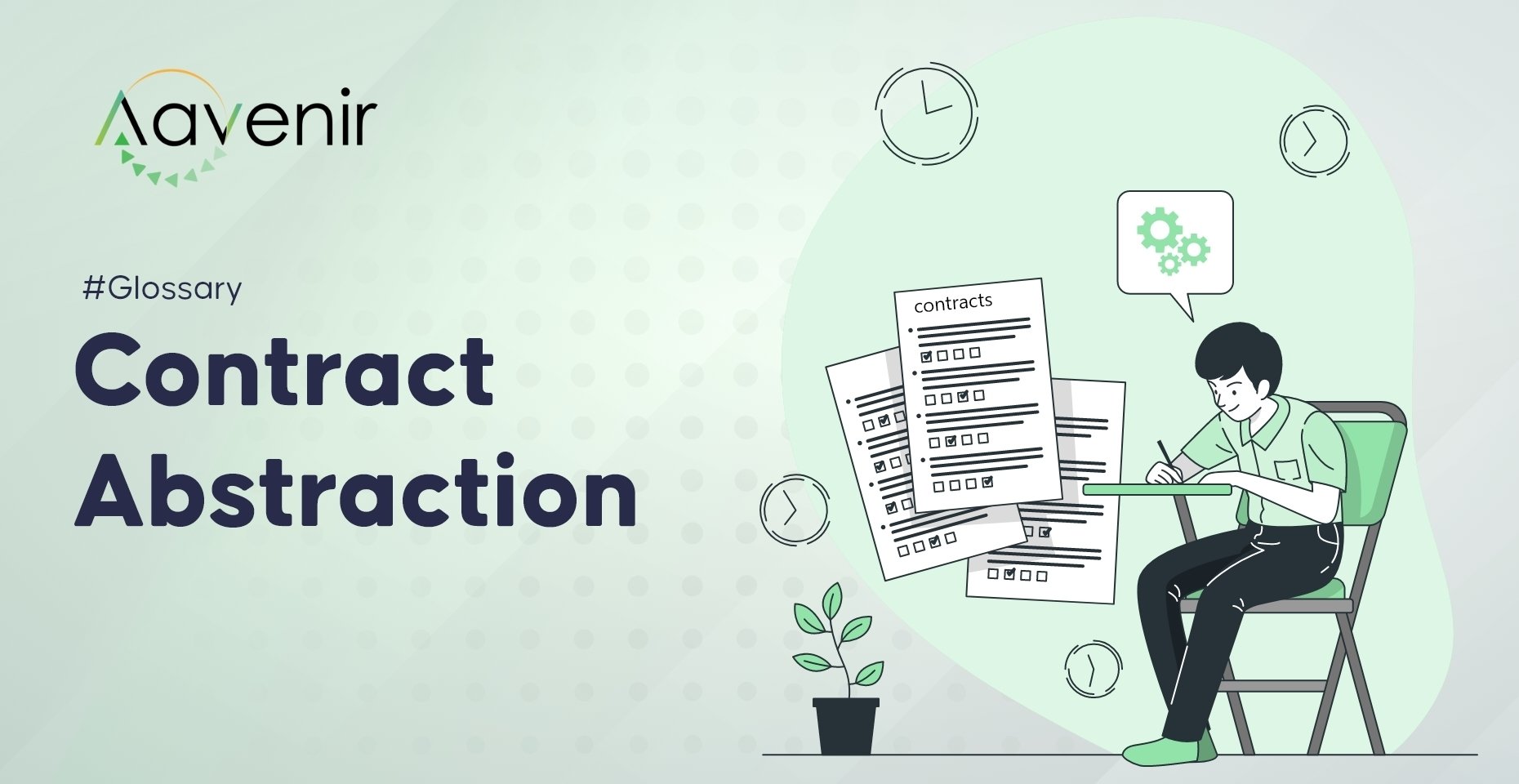What is Contract Abstraction?
Contract Abstraction is a legal method highlighting all relevant clauses and provides a window into the agreement’s key information. In short, the summarization of essential contractual data is the true meaning of contract abstraction.
Contracts are crucial assets for every business. They help define and govern the rights and duties of any new relationship or agreement. As a company grows, so does the number of contracts that need management. This takes a toll on its contract abstraction process as well.

Abstracting a brief statement or a specific bit of data (such as dates or clauses) from a contract is known as contract abstraction. It is a legal method highlighting all relevant clauses and provides a window into the key information shared in the agreements.
Nonetheless, contract abstraction is the most effective technique to consolidate contractual rights, liabilities, and responsibilities by extracting crucial elements from the agreement’s body. Contracts become easier to understand, and the overall contract management process gets more convenient when contract abstraction techniques are implemented into your contract management framework.
Why is Contract Abstraction Important?
Contract administration can be complex due to the length of contracts (often hundreds of pages). Legal teams can save time and resources while assuring compliance and enhancing overall productivity by abstracting dates, clauses, payment terms, and other critical information.
Contract abstraction is important as it makes contracts easier to comprehend for non-legal professionals. It begins with incorporating procedures into your contract management framework, as the essential clauses and details are summarized and brought to the forefront. The contract administration procedure becomes more convenient and straightforward, while each contract becomes more accessible to the larger organization.
Do you know how to automate data extraction from unstructured contracts using AI? Read more >>
When is Contract Abstraction used?
Today, every business and organization signs and enters into many contracts. It has become the norm in all corporate interactions. However, this can be a challenge because contract management does not end when the contract is signed. Instead, it involves critical information required to make informed business decisions.
Contracts can be perplexing when they contain a lot of legal jargon and unreasonably long sentences. It makes contract interpretation far more complex and time-consuming, especially when performed by someone outside of the company’s legal staff. This is when contract abstraction, a necessary component of the contract management process, comes to the rescue.
Contract abstraction is used extensively in both law firms and enterprises. It helps digest long and complicated documents by transforming them into an understandable summary of vital topics. The procedure streamlines and facilitates the legal team’s work while also allowing everyone in the company to understand and follow the contract.
Before commencing the abstraction process, professionals should consider a few factors, such as recognizing significant terms, metadata, and other contract components.
Contract abstraction entails several tasks, including:
- Defining contractual rights and obligations
- Identifying discrepancies or contradictory terms in the contract
- Making changes and updates to the agreement
- Examining the contract for any amendments
- Creating a compliance checklist that includes timetables, renewals, and progress reporting
Are you considering adopting AI-enabled contract management software, like Aavenir Contractflow, which uses machine learning and natural language processing to extract the most relevant data from contracts and documents? Schedule a demo to get deeper insights into how you can leverage automated contract abstraction to streamline your enterprise-wide contracting process.



